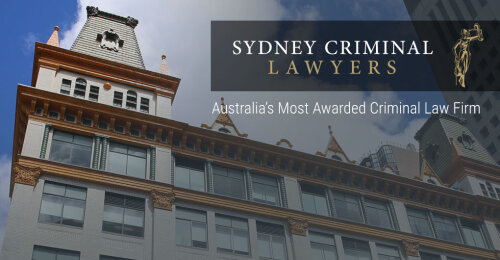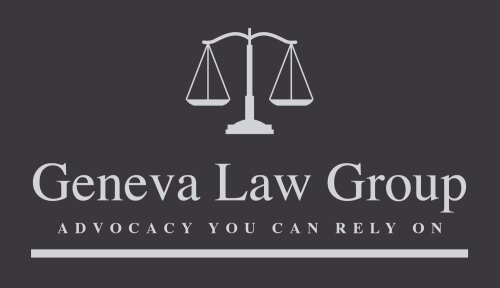Best Arrests & Searches Lawyers in Sydney
Share your needs with us, get contacted by law firms.
Free. Takes 2 min.
List of the best lawyers in Sydney, Australia
About Arrests & Searches Law in Sydney, Australia
Arrests and searches in Sydney, Australia, are governed by both state and federal laws that aim to balance law enforcement powers with individual rights. The New South Wales (NSW) Police are primarily responsible for enforcing these laws within Sydney. The legal framework outlines when and how police officers can lawfully arrest a person or conduct a search of an individual or property. Understanding these laws is crucial as they determine the legality of police actions and safeguard individual freedoms.
Why You May Need a Lawyer
Seeking legal advice is often essential in situations involving arrests and searches to ensure your rights are protected and to navigate the complexities of the legal system. Some common scenarios where you might need legal help include being arrested or detained by the police, having your property searched, or being a victim of what you believe was an unlawful search or arrest. Legal assistance can help in strategizing your defense, challenging evidence obtained unlawfully, or pursuing a complaint against police misconduct.
Local Laws Overview
In Sydney, the key legal provisions regarding arrests and searches are found under the Law Enforcement (Powers and Responsibilities) Act 2002 (NSW). This legislation stipulates under what conditions the police can make an arrest without a warrant, such as when they suspect someone is committing, has committed, or is about to commit an offense. For searches, police must generally have reasonable grounds to suspect illegal activity or possession of prohibited items. The act also details the rights of individuals during an arrest or search, like the right to remain silent and the right to contact a lawyer.
Frequently Asked Questions
What should I do if I am arrested?
If you are arrested, it is important to stay calm and cooperate with the police. You have the right to remain silent and should request to speak with a lawyer as soon as possible.
Can the police search my home without a warrant?
Police generally need a warrant to search your home unless they have a reasonable belief that a delay would lead to the concealment or destruction of evidence, or they are in pursuit of someone who has committed a serious offense.
What are reasonable grounds for a police search?
Reasonable grounds exist when police have a factual basis to suspect illegal activity. This is more than a vague hunch and requires objective reasoning supported by facts or evidence.
Do I have to answer police questions during a search?
You are not obligated to answer questions other than providing your name and address unless you are in a situation where specific legal obligations apply (e.g., driving offenses).
Can the police use force during an arrest?
Police can use reasonable force necessary to conduct an arrest. The level of force must be proportionate to the circumstances and necessary to ensure the arrest.
What happens if I resist an arrest?
Resisting arrest or obstructing police can lead to additional charges. It's advisable to comply with police instructions and address any grievances later through legal channels.
How should I respond to an unlawful search?
If you believe a search was unlawful, you should document the incident and seek legal advice. You may have grounds to challenge the evidence obtained during the search in court.
What are my rights if I'm taken into custody?
You have the right to be informed of the charge, the right to contact a lawyer, and the right to remain silent, except to provide basic identification details.
How can I make a complaint against a police officer?
You can make a complaint to the NSW Crime Commission or the NSW Ombudsman if you believe there has been police misconduct.
Can evidence from an illegal search be used against me?
Courts may exclude evidence obtained unlawfully, but this decision depends on the circumstances, including the nature of the offense and how the evidence was obtained.
Additional Resources
For further assistance, consider reaching out to the following resources:
- Legal Aid NSW
- NSW Bar Association
- NSW Law Society
- Community Legal Centres NSW
- NSW Ombudsman
Next Steps
If you find yourself needing legal assistance in matters related to arrests and searches, consider contacting a lawyer who specializes in criminal law. Schedule a consultation to discuss your situation, and gather any relevant documents or evidence that could support your case. Remember, prompt legal advice is crucial to ensure the best possible outcome.
Lawzana helps you find the best lawyers and law firms in Sydney through a curated and pre-screened list of qualified legal professionals. Our platform offers rankings and detailed profiles of attorneys and law firms, allowing you to compare based on practice areas, including Arrests & Searches, experience, and client feedback.
Each profile includes a description of the firm's areas of practice, client reviews, team members and partners, year of establishment, spoken languages, office locations, contact information, social media presence, and any published articles or resources. Most firms on our platform speak English and are experienced in both local and international legal matters.
Get a quote from top-rated law firms in Sydney, Australia — quickly, securely, and without unnecessary hassle.
Disclaimer:
The information provided on this page is for general informational purposes only and does not constitute legal advice. While we strive to ensure the accuracy and relevance of the content, legal information may change over time, and interpretations of the law can vary. You should always consult with a qualified legal professional for advice specific to your situation.
We disclaim all liability for actions taken or not taken based on the content of this page. If you believe any information is incorrect or outdated, please contact us, and we will review and update it where appropriate.















